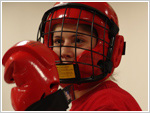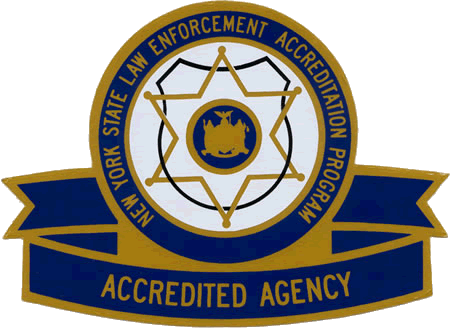Hotlines and campus resources
- YWCA of Cortland AID to Victims of Violence (AVV)
Local CRISIS HOTLINE 1-800-336-9622 - RAINN Rape Abuse & Incest National Network
1-800-656-HOPE (4663) - SUNY Cortland Title IX Information
For more information on resources, victim's bill of rights, amnesty policy, and reporting options. - SUNY Campus Resources for Sexual Assault Prevention
Reporting a Crime or Incident
College officials required to report crimes and incidents in accordance with the Campus Security Act should submit a report to student conduct via their reporting system. These officials include academic deans, Residence Life and Housing staff (including residence hall directors and residence assistants, Student Conduct Office staff, University Police staff, Athletics Office staff (including coaches), advisers to any student organizations, reporting offices staff, and the Vice President for Student Affairs staff. Those exempt from reporting are pastoral and professional counselors.
Self-Defense Training: Kickin' with Confidence

Kickin’ with Confidence is a 2-hour program that shows participants realistic self-defense tactics and techniques. The course begins with awareness, prevention, and risk avoidance. Kickin’ with Confidence is not a martial arts program, but is a program taught by certified instructors from the University Police Department and other campus offices.
The program is sponsored by SAFER (Students Active For Ending Rape), the It's On Us Action Team, the Office of Student Affairs, a Wal-Mart Community Grant, and the University Police Department.
We offer this program in conjunction with other sexual assault awareness strategies. We recognize that sexual assault is a complex problem, and there are many different initiatives that can work in concert to address the issue.
For more information contact Lt. Jason Welch at [email protected]
Dealing with Sexual Assault
Facts About Rape
- One in three women and one in six men will be a victim of a sexual assault before the age of 18.
- One in four women will become a victim of rape in their lifetime.
- Over one-half of the rapes that occur are committed by someone the victim knows.
- Only 1 in every 10 rapes that occur are reported.
- Rape is defined as any forced sexual intercourse.
- Rape in any form is a CRIME.
- Rape is not a sexual act. it is a violent assault used to express the need for power and control.
- Most rapes are not random acts, rapists choose their victims.
What Can You Do To Help Prevent Sexual Assault?
Speak up.
You will probably never see a rape or other sexual assault in progress, but you will see and hear attitudes and behaviors that degrade women and promote rape. When a friend or other person tells a joke about rape, say you don't think it's funny. When you read an article that blames a rape survivor for being assaulted, write a letter to the editor. When laws are proposed that limit women's rights, let politicians know that you don't support them. Get involved in anti-violence groups and organizations. Do anything but remain silent.
Talk with women.
Talk with women about how the risk of being raped affects their daily lives; about how they want to be supported if it happens to them; about what they think men can do to prevent sexual violence. If you are willing to listen, you can learn a lot from women about the impact of rape and how to stop it.
Talk with men.
Talk with men about how they feel regarding sexual assaults; about the fact that 10-20% of all males will be sexually abused in their lifetimes; about whether they know someone who has been raped. Learn about how sexual violence touches the lives of men and what we can do to stop it.
Work to end all oppressions.
Rape feeds off many other forms of prejudice, including racism, homophobia and religious discrimination. By speaking out against any beliefs and behaviors, including rape, that promote one group of people as superior to another and deny other groups their full humanity. Support everyone's equality.
Communicate.
Sexual violence often goes hand and hand with poor communication. Our discomfort with talking honestly and openly about sex dramatically raises the risk of rape or other sexual assaults. By learning effective sexual communication- stating your desires clearly, listening to your partner, and asking when the situation is unclear- you can make sex safer for yourself and others.
Be aware of language.
Words are very powerful, especially when spoken by people with power over others. When we see women as inferior, it becomes easier to treat them with less respect, disregard their rights and ignore their well-being.
Always make sure it is consensual.
If you are going to have sex, make sure that it is consensual. Consensual sex is when both partners are freely and willingly agreeing to whatever sexual activity is occurring. Consent is an active process, you cannot assume you have consent—you need to ask.
Support survivors of rape and other sexual assaults.
Rape will not be taken seriously until everyone knows how common it is. By learning to sensitively support survivors in their lives, we can help both women and men to feel safer to speak out about being raped and let the world know how serious a problem rape and sexual assault is.
Organize.
Join an organization dedicated to stopping violence.
Contribute your time or money.
Donate your time or money to an organization working to prevent violence in our community.
What Do You Do If You Are Sexually Assaulted?
Find a safe place.
Get to a safe place- anywhere away from the attacker. Call someone you trust, such as a friend, relative, or a police officer to come to meet you.
Get medical attention.
You may have injuries that are not evident yet. Even if you have no physical injuries, immediate medical care is important to reduce the risks of pregnancy or sexually transmitted diseases. You do not have to press charges just because you seek medical attention.
Preserve evidence.
You do not have to decide if you want to prosecute right away, but preserving the evidence will help law enforcement if you decide to prosecute at a later date,
Do not bathe or brush your teeth.
If you have already changed your clothes, place them into a paper bag (NOT plastic) to preserve them.
To preserve evidence, ask the hospital to conduct a rape kit exam. If you suspect that you may have been drugged, ask for a urine sample to be collected.
Get professional help.
Getting help does not mean you have to prosecute. Professionals trained in crisis intervention are available free to SUNY Cortland students at our counseling center and YWCA Aid to Victims of Violence (AVV). When you are considering your options, it is vital to remember;
- It is not your fault;
- Every rape or sexual assault is different;
- It does not matter what you did or did not do during the assault;
- Healing from a sexual assault takes time;
- It is never too late to get help, even if the assault happened years ago.
Report the assault.
If or when you are ready, you can report the assault to the University Police Department 24 hours a day at 607-753-2111 or 911. If you live off-campus call 911 to report the assault. Sexual assault victims may report any sexual assault crimes to the University Police Department. The University Police will fully investigate the crime and assist the victim with obtaining support services. Victims of crime have three options to choose from, criminal prosecution, referral to the Office of Student Conduct or have no action taken. The University Police Department will work with the victim and support their decisions.
If a victim does not wish to have any police involvement they may report the crime to one of the following campus offices:
- Title IX Coordinator, President's Office, Miller Building 607-753-4550
- Student Affairs, Corey Union, Room 407A, 607-753-4721
- Student Conduct Office, Corey Union, Room 409 607-753-4725
- Student Health Services, VanHoesen Hal, Room B-26, 607-753-4811
- Residence Life and Housing, VanHoesen Hall, Room B-57, 607-753-2095
- Athletic Department, Park Center, 607-753-4954
- Counseling/Student Development, VanHoesen Hall, Room B-44, 607-753-4728
- Corey Union/Campus Activities, Corey Union, Room 406 Corey Union, 607-753-2321
- Recreational Sports, Student Life Center, 607-753-4960
- Outdoor Education, Raquette Lake, 315-354-4784
These offices allow victims to report crime on a voluntary/confidential basis and there will be no formal investigation. The statistic is then included in the Campus Security and Fire Safety Report and will be reported to the Department of Education (DOE).
If someone you know is sexually assaulted.
- Believe them. Listen to them, be there, support them, and do not be judgmental.
- Help them understand their options.
- Encourage them to seek medical attention and contact law enforcement, but do not push them to report. It must be their decision.
- Be patient. It will take time for your friend to process and to heal. Encourage them to contact the SUNY Cortland Counseling Center or YWCA Aid to Victims of Violence (AVV).
Frequently asked questions:
- Who needs to know? You have the right to choose whom to tell. You may consider speaking to a trusted friend or family member or a counselor at our SUNY Cortland Counseling Center, YWCA Aid to Victims of Violence (AVV), or use the RAINN Online HOTLINE.
- Will my parents be called? Not without your permission, unless you are under 18 years old. In the case of a life-threatening emergency, the hospital may call your closest relative.
- Do I have to go to court or a student conduct hearing? Only if you decide to press criminal or judicial charges.
- What if I have a pregnancy, HIV/STD, or injury concerns? You can go to the local emergency room at CRMC (Cortland Regional Medical Center) or SUNY Cortland Student Health Services.
- Where can I find information regarding my rights as a victim? You may contact the Student Conduct Office, the University Police Department, or the YWCA Aid to Victims of Violence.

